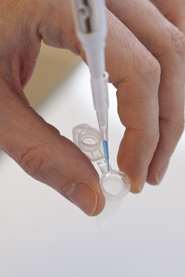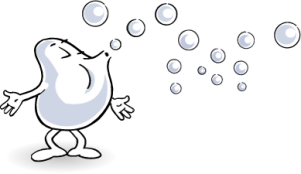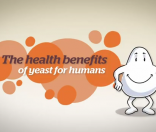What can be done with yeasts used as cellular factories?
Explore the white biotechnology potential offered by yeast.
This optimal use of yeast through natural processes for the large-scale production of active substances is part of what is called "white biotechnology ".
Within the framework of this white biotechnology, yeasts used are not designed for human or animal food purposes. The aim is to exploit their cellular machinery for mass production of valuable molecules that could be used in healthcare , nutrition , chemistry of materials or energy .
To meet specific needs, the integration or withdrawal of specific biological synthesis may prove necessary.
One of the concrete achievements of this sector in human healthcare dates back to the years 2000 with the construction of a yeast capable of producing a human hormone: hydrocortisone. The technique, developed by a French team in partnership with a major pharmaceuticals player, has made a real impact.
Since then, the production of new specific proteins through yeasts and the integration into cells of new, complete metabolic paths have become a well-controlled reality.
This scientific revolution , which now interests a number of industrial sectors, should, in the future, provide new molecules that will be increasingly part of our everyday lives.
Do you know that these products are made by the yeast factory?
Alcohol, healthcare, human and animal nutrition... yeast is involved in many applications in our everyday lives. Follow the guide!
To date, yeast is the best organism to obtain alcohol by fermentation . The ethanol produced can be used in the preparation of spirits, in perfumery and even as an alternative biofuel to petrol. In France, in 2011, a full petrol tank can contain up to 10% ethanol. In a few years' time, the arrival of new engines will allow the addition of more ethanol in petrol and be a solution to the increased scarcity of petroleum products while fighting greenhouse gases.
Yeast also contributes every day to our health and well-being by naturally accumulating beneficial anti-oxidising or anti-inflammatory molecules. In purified form, these molecules, including glutathione and S-adenosylmethionine (SAMe), are already commonly used in human and animal health and nutrition applications.
A large share of insulin sold today by chemists to treat diabetes is also obtained thanks to the yeast cellular factory.
 Yeast is a cellular factory and as such is naturally capable of modifying and combining several simple molecules, taken from its environment, such as sugars, lipids and amino acids, and synthesise all elements needed for its growth at a mild temperature.
Yeast is a cellular factory and as such is naturally capable of modifying and combining several simple molecules, taken from its environment, such as sugars, lipids and amino acids, and synthesise all elements needed for its growth at a mild temperature.





